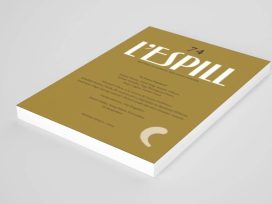Martha Albertson Fineman is one of the leading figures in feminist legal theory today. This is both because of her commitment to creating and maintaining a platform for feminist and critical legal theory, and because of her ground-breaking work on the regulation of the family as an institution. Her theories reveal the discursive structures of the law and encourage social institutions to be reimagined, such that they take on a larger public responsibility for equality and a good life for everyone. Fineman’s theoretical project during the last decade could be described as an attempt to create a new, critical narrative of the law, a narrative starting from our shared vulnerability, instead of from a liberal conception of an autonomous and self-preserving individual. Fineman shows, through a feminist critique of liberal ideals, how a societal discourse rooted in individualism and autonomy works to sustain an unjust distribution of power, influence and resources.
Fineman’s framework can be understood as existing in the borderland between critical theory and normative care ethics. Her theoretical project strives to transform the fundamental ideals of the law. Although Fineman takes the North-American context as her starting point, the framework can also be applied to the Nordic welfare states and the privatization that is occurring through freedom of choice in the school systems resulting in an increasingly segregated education, downsizing in the health and care sectors, and the growth of private markets for welfare services, that were previously fully publically funded. Fineman’s work can be read as providing insight into the ways in which a discourse of autonomy is used to displace public responsibility and to a large degree leave an ostensibly independent and capable individual solely responsible for the risks and downfalls of his or her life.
In her book, The Autonomy Myth: A Theory of Dependency, Fineman identifies the autonomous subject as the starting point for legal systems, social orders and institutions within a liberal democracy. She examines how the western legal tradition presumes a human subject that is free, independent and self-preserving; this subject is also assumed to be a healthy adult (but not old) with stable employment. This image fails to take into account family relations, human needs and the fragility and vulnerability of life. The role of the autonomous, liberal legal subject is easier to play for privileged individuals with resources, and whose risks, dependency, and vulnerability are carried out and balanced by others. The family becomes the designated repository for human dependency and vulnerability, thereby hiding structural inequalities. According to Fineman, the family is more than an institution used to organize reproductive work; it is also the primary sphere wherein our fundamental vulnerability and dependency are recognized. Through the application of Fineman’s analytical framework, it can be shown how the regulation of the family and the welfare state becomes a way of marking the boundary between a public, politicized sphere and the private, depoliticized sphere, and how subjects and problems are differently constructed in relation to this boundary.

Ernst Ludwig Kirchner: Interieur, 1915, Pinakothek der Moderne, München. Photo: Rufus46. Source:Wikimedia
In her influential article, “The vulnerable subject: Anchoring equality in the human condition”, Fineman takes this critique further, and shows how the legal systems’ notion of formal equality does not take into account either the contextual or embodied differences that exist between individuals. Fineman offers a critique of the system of rights and anti-discrimination as a starting point for equality politics. Since these strategies tend to begin with a focus exclusively on the individual as the bearer of rights and resources, they fail to consider the unjust distribution of structural and institutional power. Our ability to handle the risks of life depends on our context, our position and our access to resources; however, the ever-present possibility of sickness, accidents, natural disasters and death is common and universal. This perspective stands in contrast to the stigmatizing tendency to talk about distinct and separate “vulnerable groups” as a point of departure for redistribution and politics of equality. It also rejects the mandate of a limited welfare state that only reaches out to those “in need”. Thus, Fineman argues for a new and improved socio-political narrative, one in which the universally shared human condition of vulnerability is placed in a life cycle perspective. This narrative forms the basis for a legal and social order that institutionalizes a common or collective responsibility for our shared vulnerability instead of referring it to the institution of the private family. This approach implies a strong, generous and universal welfare state and a public responsibility for need, dependence and a good life.
Mirjam Katzin: In your influential book, The Neutered Mother, the Sexual Family, and Other Twentieth Century Tragedies, you introduced the concept of “the sexual family”, a concept that explains inequality within the family and problematizes the societal organization of care. In short, the concept seeks to explain how the law’s expectations of the family are based on a hetero-normative nuclear family ideal, which assumes that intimacy, romance, and sexuality, are organized into units based on the horizontal level, the romantic relationship. The organization of these units ultimately also determine the organization of care. This is based on a meta-narrative that builds on a “natural” and essential conception of the family, which consolidates its position as fundamental to the social order. This also means the continuing institutionalization of women’s caring responsibility, that the sexual family is the reproductive imperative of the law. Could you say something about the way in which the legislator thus helps to support the social order in terms of the organization of care?
Martha A. Fineman: What I was trying to do was talk about how the organization of the family impacts and reflects the organization of the rest of society. In the United States, the family is the way we privatize dependency, not just that of children, but of anyone in need of care work, including the elderly, the disabled and the ill. This iteration of dependency, which I call inevitable dependency, is referred to the family. Within the family, the responsibility for care work seems to be intimately linked to gendered divisions of labour; thus, I argue that it is impossible to have true change within family relations without larger social change. Societal institutions must start to share responsibility for dependency, only then can responsibility within the family be reimaged. To achieve this, I would primarily ask for accommodations, which would require that we change the way we think about the workweek, and change the demands that are made on individual workers. It would also require more support from the state itself, in terms of things that you in European welfare states take for granted, like childcare and universal health care. In privatizing dependency within the family, what we essentially do is to let off the hook both the so-called “private sector” and the state. We must recognize, for example, the ways in which market institutions benefit from this organization of the family; they get workers and consumers through the reproduction of society, and the state gets taxpayers and citizens. But these institutional actors do not pay for, or give support to, this reproduction of society.
Why is it that a family that needs to reach out beyond its individual members’ resources for support is stigmatized? Another way to think about this is to think about the way that we in the United States use the family as a kind of mediating institution between the state and the individual. The family operates to mediate the state’s responsibility to the individual, so that we refer individual needs for social support first to the family or to the workplace. So if the family fails us, or we fail in the workplace, then we can go to the state, but in a highly stigmatized process.
In The Neutered Mother, I use the idea of the centrality of sexual affiliation in that particular social organization and I ask why instead of privileging sexual affiliates we don’t privilege dependent-care taker relationships? It seems to me that that would be the better social investment because care work is what we should want to encourage. If we really want the family to take care of those members in need, then let’s support them in doing so, rather than supporting heterosexual, or for that matter same-sex, sexual affiliation – the horizontal line of intimacy that we now valorize and protect.
“Derivative dependency” is the concept I have developed to describe a dependency that is derived from the need for care that “inevitable dependents” have. Infants have to be cared for, the ill have to be cared for; those are inevitable, biologically based concepts. Derivative dependents are those who care for others, and those who do care work are dependent on the exchange of resources in order to undertake that care. If you are assuming care for another being in this world, you have to have economic, emotional and other kinds of resources. And again, in the United States, the family is where we refer derivative dependency. We don’t expect or demand that the workplace or the state are going to be involved in meeting the needs of this derivative dependent, this care-taker. To me, that seems inherently unjust. In The Neutered Mother there is a chapter where I make an analogy between caretaking and soldiering. In American society today, not everybody becomes a soldier, only those who volunteer do; and when they do, all of society then supports that soldier, both economically and socially, so that they can accomplish their task successfully. We pay taxes, we create institutions, and we have mechanisms in place to compensate soldiers when they leave the service. Why do we do this with soldiers but not with caretakers? Why do we not arrange our institutions in such a way so that caretakers are supported not only when they perform this valuable task but also later in life? This would be a way to support care work and to recognize that care work has costs; caregivers are required to give up things, like investing in a career, because you are doing unpaid care work instead. Derivative dependency is socially constructed and the family is the mechanism whereby we assign the derivative dependence.
When I wrote The Neutered Mother in 1995, I was still working through gender and thinking about caregiving in the context of women, which I no longer do. One of the realizations I had was that it really isn’t the gender of the person who is doing the care work, it is the care work itself that is not valued in this society. It doesn’t really matter if the caretaker is a man or a woman, care work is not valued or accommodated, which I think is the more significant point. Historically, this lack of valuation had gender implications; but in fact, I don’t think of it as a gendered problem any longer. It is the task itself that is not rewarded or valued, not the sex of the person who is doing it.
In response to these claims, which I further address in my following book, The Autonomy Myth, people would argue that this type of dependency only concerns children. We can still focus the theories on which we build our society on the autonomous and independent adult. When it comes to derivative dependency, they said what really matters is “choice”. If you choose to become a caretaker, you really can’t complain about the consequences of that choice. That is what it means to have liberty and freedom, the ability to make choices! My response to such comments was to develop a theory of universal vulnerability. If you think of dependence in both of its forms, as inevitable and derivative, it could possibly be seen as episodic or as chosen. But our inherent vulnerability is neither voluntary nor episodic; it is always there in every one of us. Thus, I started to think about our shared vulnerability and now understand dependency to be the realization of our embodied and embedded vulnerability.
MK: You often point to that more focus should be placed on the distribution of privileges and the institutional support of these distributions to the privileged. You have also expressed a wish that the focus should be on the broader questions of equality rather than on gender or other identities. Would you like to elaborate on this?
MF: When I first started out in the 1970’s, I began by critiquing the various inequalities within the family, in the workplace, and in pay. I focused on how negotiations within the family were also related to unequal wages, as the lower wage earner tends to be disadvantaged in family bargaining. Related disadvantages exist when it comes to divorce. Since the non-primary wage earner typically maintains custody of the children, thus assuming on-going responsibilities for care work, this individual has less time and energy to expend on market work. To impose our equality model on a system of structural inequality just seemed to perpetuate these inequalities. While I started out writing exclusively on the family, in my next book The Neutered Mother, I began to think about how the family operates as an institution in relation to other institutions. I saw that it was the care work and the dependency that was central. Then, in The Autonomy Myth, I looked at the role of the family in society more broadly, noting the ways in which it operated as this mediating institution, as the primary site of the privatization of dependency, and these realizations led me to study our shared vulnerability instead.
We have spilled a lot of time, energy, and ink writing about oppression, sexism, and gender issues without really thinking about the ways in which the law confers privilege in the context of defining social roles and relationships. I prefer to think about it that way, because it seems that it is counter-productive to focus only on disadvantage. It will prove to be more productive if we look at who is rich and why and how that comes to be; taking a closer look at the mechanisms responsible for the distribution of state subsidy can yield insight into how society operates. These mechanisms are invisible, and they will remain invisible if we continue to focus exclusively on the people who are exploited and oppressed when approaching advantage. While it is possible to learn some from such a limited approach, the way power is distributed at the top of society, and the way that social institutions work to privilege certain individuals, is obscured. Why are employer privileges institutionalized over those of employees, when we think about the labour relationship? Why are parents privileged over children, when it comes to the need for state regulation or concern? In the United States, parents can prevent their children from exposure to certain subjects, put them in private schools, or take them out of school all together and home school them. These questions of why we privilege certain individuals over others seem to be more interesting than, “should children have rights?” Instead, the question should be, “what should be the limitations of parental rights?”
MK: You stress the existence of the body – and of death! – in a way that is quite uncommon in contemporary feminist or critical theory, which often is based on a more post-structural conception of the body and where material or biological realities are less central than the discourses surrounding it. Do you think that it is the fear of ending up in a bio-essentialist trap that is the driving force behind this development in today’s feminist theory? Or is it that we on some levels are uncomfortable with the existence of the body and of death?
MF: I think that we exist within a bio-essentialist trap, which is that we all die! We could all, at any time, get injured or become sick. Whether we call it essentialist or not is up to others, but it is an undeniable reality, and that is why I start with the biological and irreducible nature of life. Society can give this universal experience different meanings, expressions or manifestations, but that comes in the embeddedness of difference, in the social construction or interpretation, it does not come in the embodied side of difference. I distinguish between the basic human condition, which is biological or developmental, and human nature, which is a construct, our imaginations of what the human subject is, which also exists in the institutional side and not in the embodied side. The notion that there is ultimately no reality is nonsense. There is a reality, a shared reality, although I do agree that throughout history and across emerging societies, there have been different meanings attached to life. This acknowledgement does not diminish the fact that we start out with something that we all share.
MK: You argue for a more responsive state in reply to the recognition of our shared human vulnerability. At the same time, we see how state responsibility in many places is still being rolled back in favour of the private sector, in the wake of neoliberal ideals. Another form of privatization relies on a neo-conservative ideology that wants to bring things back to the family and the private sphere, which emphasizes those values. As you said, the Nordic welfare states have tried to organize care collectively, by well-developed and cheap but high quality services such as childcare or eldercare, in what is usually called, “the social service state”. Currently in Sweden, we can see that parts of this service state are being cut down, not so much in the childcare sector, but in the elder care sector, with an increased private responsibility for the welfare of elders. Today, relatives perform the major part of eldercare. You could see similar, although not as drastic, changes in the care for the disabled and the health care. How could this be explained in terms of neoliberalism and neo-conservatism, and how would you say that these ideas are connected?
MF: The fact that state responses to childcare and elder care differ is interesting. The ill or elderly person’s claim is based on the past, while the child’s claim is based on the future. We would rather focus on investing in the future than supporting an individual whose contributions to society have already been made. We have experienced a parallel development here in the United States. I believe that all societies that cut back on care are going to have a crisis with their aging population. Support for children’s needs, if you have pro-natalist policies, makes it easier for people to have children, which is why it is easier for people to see that investing in children is investing in the future. But again, that makes the claims of the elderly harder, because their contributions have been consumed and may thus be ignored and forgotten.
Neither neo-liberalism nor neo-conservatism acknowledge social context. I think that the conception of public and private is nonsense, like many feminist thinkers, who have consistently critiqued the idea of separate spheres of responsibility. Capitalism uses neo-conservatism for the privatization surge, and it does so by focusing on individuals rather than on entities or collectivities or inclusiveness. This is connected to anti-discrimination rhetoric, as the focus remains on the individual in possession of things and rights and whether or not that allocation is correct or not; this discourse fails to look at distribution at a societal level. Discrimination refers to a difference in treatment; it does not evaluate treatment as being just or not. As long as everyone is treated badly, there are no grounds for discrimination. While we do frequently discriminate at the upper level, that never comes into view.
Neo-conservative rhetoric justifies the status quo because it assumes that everything is natural or normal, and then starts defining justice based on existing inequalities. We perceive general equal treatment, but then there are all kinds of injustices that are hidden in institutions or relationships. Let’s examine the lives of those with privilege. There is the concept of the “submerged state” – on the one hand, you have the welfare state, which is very visible, and on the other hand, there is the submerged state, which represents the way that the state in fact subsidizes things like corporations, which is hidden beneath the surface. This is structured and institutionalized through laws and regulations, like corporate law, financial law and government bank bailouts, which work to privilege certain individuals and certain social relationships. Massive amounts of resources are put into the submerged state, compared to what is being put into the welfare state. This is an allocation question, not a question of whether or not we have the resources.
MK: Finally, when you wrote about the sexual family, you described the regulation of family and marriage as one of the twentieth century tragedies. Which tragedies would you highlight today? And which developments do you foresee for the twenty-first century?
MF: The way in which the family has been historically defined in American society, with marriage and family as a repository for dependency, is a tragedy. Most families are not able to effectively perform the function that has been assigned to them. The sexual family, as an institution, is under a lot of stress. You see this everywhere: in the divorce rate, in the fact that people are getting married later and having fewer children, or choosing not to have children at all. It is also related to the increasing impoverishment of the middle class. There are all sorts of ways in which the family as an institution is failing individuals and society. I am not blaming the families for that! I am blaming the social organization of families, and that’s the tragedy. The other thing that is happening in the United States that is detrimental to the family is the privatization of everyday life. We live in a world of gated communities, increasingly super wealthy people who have their own infrastructure like private jets and rail cars instead of relying on regular transportation, isolated plutocrats who are separating themselves from the shared aspects of society. They live above society, in ways that isolate them. It is a tragedy and the inevitable consequences of these trends are increasing inequalities. I don’t see any way out of that in the present, unless we can smash through the perverse logic of neoliberalism.







